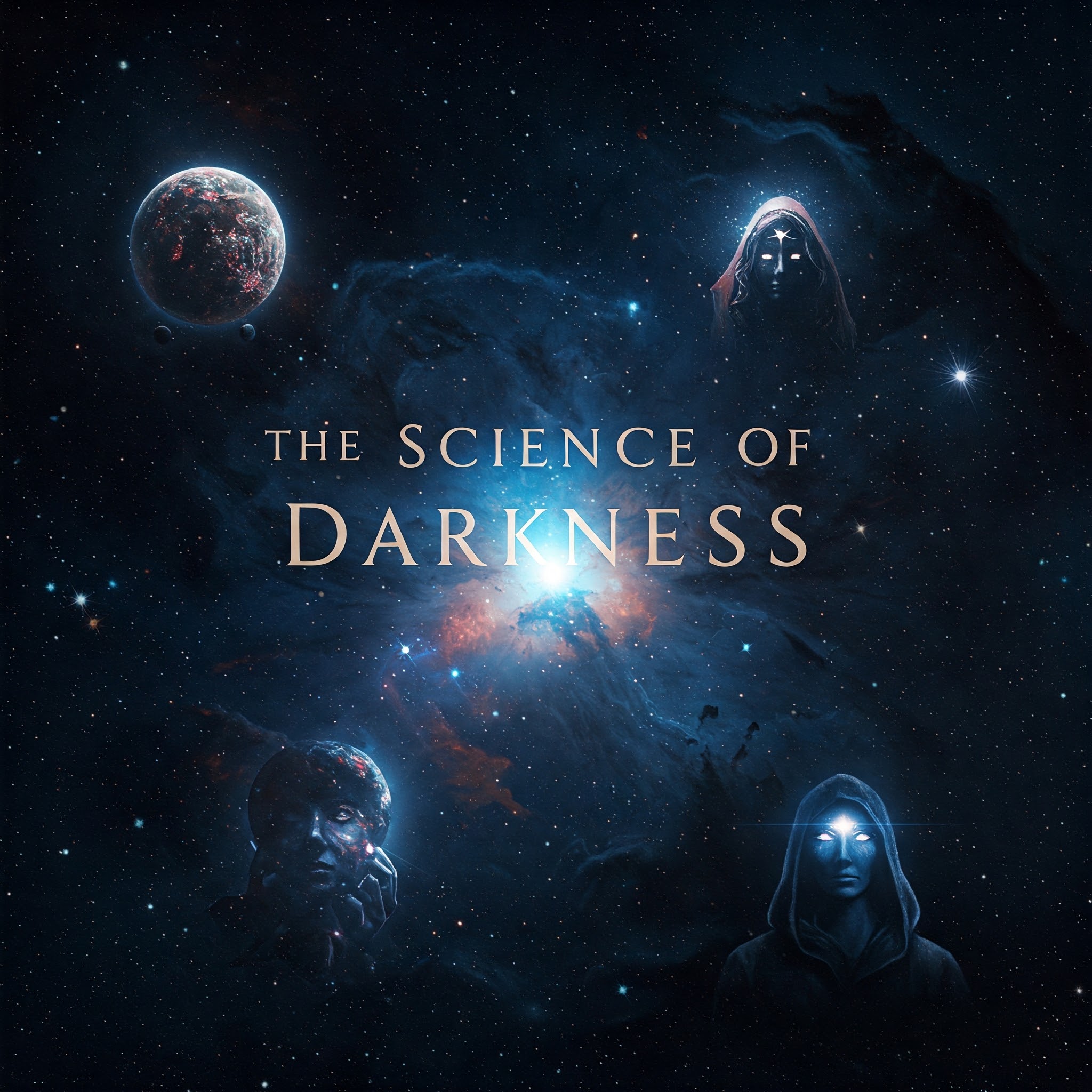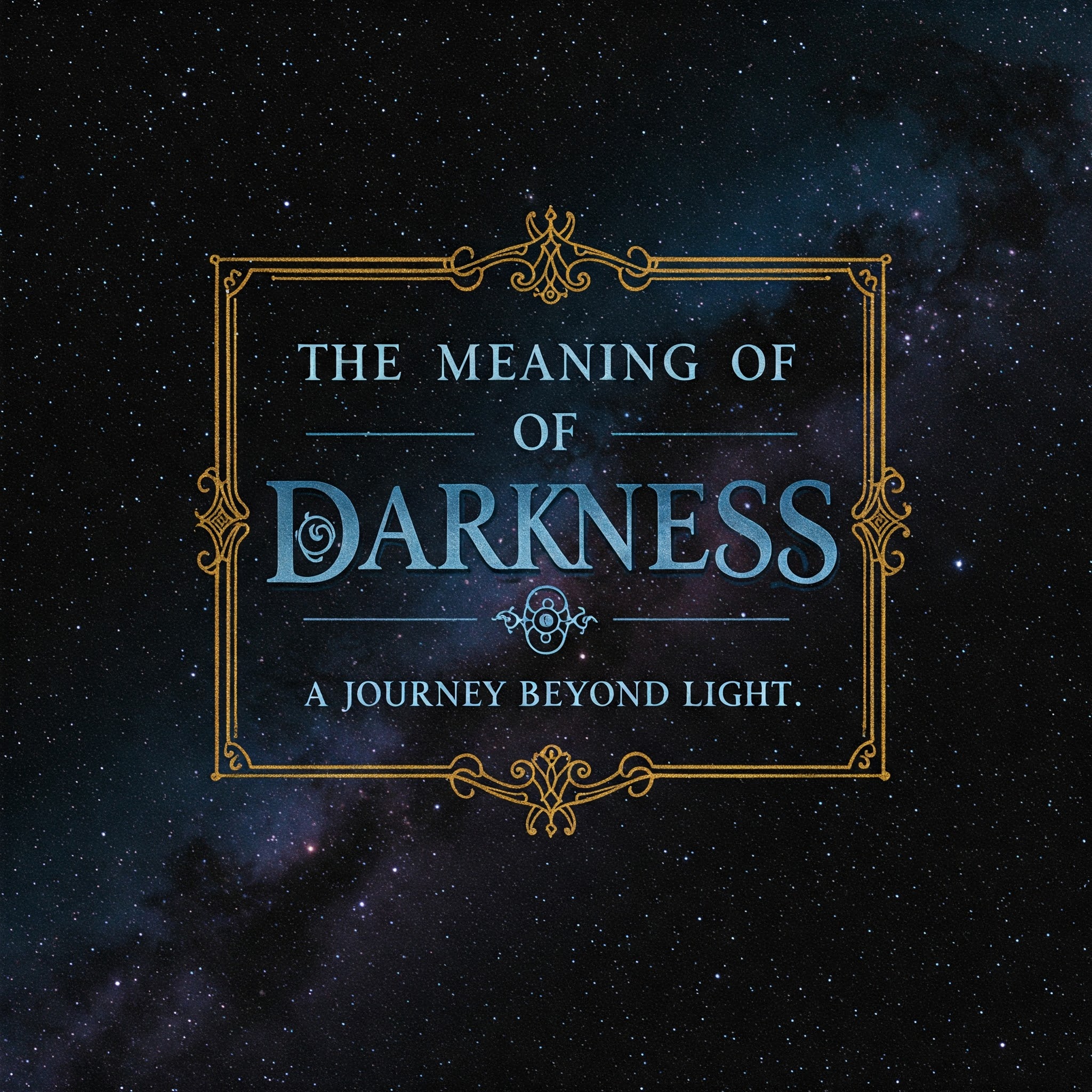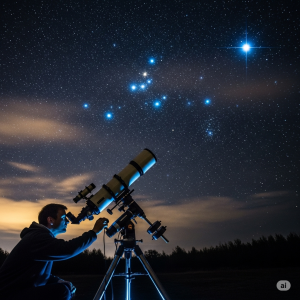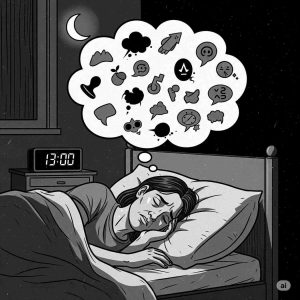The Many Faces of Darkness
Darkness is more than just the absence of light—it is a concept that has shaped human thought, emotion, and culture for centuries. Whether found in the quiet of a starless night, in the depths of the ocean, or within the metaphorical corners of the human mind, darkness holds a complex and powerful presence in our lives.
The Science of Darkness Meaning of darkness

In scientific terms, darkness occurs when there is little or no visible light. Light travels in waves, and without a source—like the sun, a lamp, or fire—we are left in darkness. Some of the darkest places on Earth include deep caves, the ocean floor, and remote deserts at night.
But darkness isn’t always empty. Space, often thought of as the ultimate darkness, is actually full of invisible radiation, matter, and energy. Physicists even speak of “dark matter” and “dark energy,” mysterious components of the universe that we can’t see but which make up most of its mass.
Darkness in Myth and Symbolism Meaning of darkness
Culturally, darkness is often tied to fear, the unknown, and danger. It’s the setting for horror stories, nightmares, and the primal fear of what we can’t see.In mythology and literature, darkness often symbolizes the subconscious, the hidden, or the divine. Nighttime is a time for dreams and deep thoughts. Ancient civilizations saw the night sky as a canvas for gods and spirits. In many traditions, entering darkness is a necessary part of spiritual growth—one must pass through shadow to reach enlightenment.
Emotional and Psychological Darkness Meaning of darkness
Darkness also has emotional weight. When people speak of going through a “dark time,” they mean a period of sadness, confusion, or hardship. But even here, darkness isn’t always negative—it can be a space for reflection and healing. Just as seeds grow in the dark soil, so too can people grow stronger after enduring darkness.
Embracing the Dark Meaning of darkness
But there is value in reclaiming darkness. Whether it’s taking a quiet walk under the stars or turning off the lights to rest, darkness can be calming and restorative.
It’s in darkness that we find rest, imagination, and the beginning of all things. And sometimes, it’s only by embracing the dark that we can truly appreciate the light.
Into the Heart of Darkness Meaning of darkness
Darkness is a world unto itself. It is not simply where light ends; it is where imagination begins.
It wraps around trees, paints the sky a deeper shade of blue, and calls out to the hidden parts of ourselves. In darkness, the world softens. The noise quiets. The rush of the day gives way to something slower, older, and more profound.
We often fear darkness because it conceals. It hides the familiar and forces us to rely on senses other than sight. But in that concealment lies beauty: mystery, wonder, and possibility. In the dark, we dream. In the dark, we imagine not just what is, but what could be.
Darkness has always been a companion to creation. Poets find their muse under the moon. Artists see shapes that daytime washes away. Even the universe itself was born from a darkness so dense, so infinite, that it birthed stars.
Yet darkness is not merely an external place; it lives within us. Everyone carries their own night—a space of unspoken thoughts, hidden fears, and silent hopes.There is a quiet courage in stepping into the unknown, in sitting with the night without needing to fill it. Darkness teaches us patience. It teaches us to listen. It reminds us that not everything needs to be seen to be understood.
When we stop fearing the dark, we learn to move through life with a different kind of vision—one that trusts, one that feels, one that knows the richest parts of existence are often the ones unseen.
So tonight, let darkness be your ally. Step into it. Feel it
The Silent Kingdom of Darkness Meaning of darkness
Before there was light, there was darkness.
Not emptiness, not chaos—something deeper. A silent kingdom where time slept, where dreams were born before they had names.
Darkness is not our enemy. It is the original world, the first home of all things. In its vast embrace, stars were kindled, oceans whispered into existence, and life began to stir. Yet darkness is patient. It watches and waits. It is the space where seeds split quietly underground, where creatures find shelter, where souls retreat to heal. Darkness is not a void—it is a womb.
In ancient times, travelers trusted the stars, tiny fires scattered across the blackness, to find their way. Poets and prophets turned inward under the weight of night and emerged with visions. Lovers found each other in the softness of the unseen.
There are truths that only darkness can reveal.
In darkness, we confront ourselves. There is no distraction, no bright illusion—only the steady beat of our own hearts. It is here, in the depths, that real transformation begins. Like the moon pulling the tides, darkness tugs at the hidden currents within us.
Those who dare to walk through the dark do not emerge empty-handed. They come back carrying pieces of the night: a deeper understanding, a sharper intuition, a quiet strength.
So do not be so quick to light a torch against the night.
Sometimes, it is better to sit still, let your eyes adjust, and see what treasures the darkness has to offer.
Because in truth, we are all children of the dark—and the stars are just windows through which we remember the light.
Whispers in the Dark Meaning of darkness
Darkness does not speak in thunder.
It whispers.
It moves like fog through forgotten streets,
settles in the spaces between thoughts,
waits behind every flickering candle flame.
It is not evil. It is not kind.
It simply is.
A quiet watcher.
A keeper of secrets
In the dark, nothing is certain—
and that is where the magic begins.
Where the Darkness Waits Meaning of darkness
They say the darkness has a shape.
Not one you can see—but one you can feel.
It waits at the edge of the firelight.
It breathes behind your thoughts.
Not chasing you… just watching. Listening.
Long ago, before names were carved into stone and stars had stories, the world was all shadow. People spoke in whispers. They lit small fires not to see, but to remind themselves they were not alone.
But here’s the secret:
The darkness never left.
It walks beside you.
Not to harm—but to hold the things too heavy for the day.
Your grief. Your rage. Your forgotten dreams.
All the pieces you hide behind smiles.
And sometimes—if you are still enough—you’ll hear it speak.
Not in words, but in feelings you can’t explain.
A question that hums inside your chest:
The Meaning of Darkness: A Journey Beyond Light Meaning of darkness

Darkness — a word so simple, yet a concept so profound. Across cultures, eras, and personal experiences, darkness has symbolized many things: fear, mystery, creation, death, rebirth, and even wisdom. In understanding the meaning of darkness, we do not just explore the absence of light—we step into a realm rich with emotional, spiritual, and philosophical significance.
1. The Physical Reality of Darkness Meaning of darkness
Scientifically, light is made of electromagnetic waves, and without a source like the sun, a flame, or an artificial bulb, we are left in darkness.
In nature, darkness is crucial. It signals rest, the closing of the day, the quieting of activity. Plants, animals, and even human beings respond to cycles of light and dark — our biological rhythms, known as circadian rhythms, are tied to this natural pattern.
But beyond the simple lack of photons, darkness carries weight because of how it shapes our perceptions. Without sight, other senses become sharper. A still night forest hums louder, a quiet dark room feels thicker. This sharpening of awareness is the first hint that darkness is more than just an empty space.
2. Darkness and the Human Psyche Meaning of darkness
Emotionally and psychologically, darkness often represents the unknown. Since ancient times, humans have feared what they cannot see: predators lurking beyond the firelight, dangers hidden in shadow. Darkness triggers our primal instincts of caution, heightening anxiety and sharpening vigilance.
Psychologists link darkness to deeper internal processes. However, this “dark night” is not the end—it is a transformative phase that leads to great.er enlightenment.
Modern psychology embraces this idea through concepts like shadow work, introduced by Carl Jung. Working through these darker aspects is essential for personal growth. In other words, acknowledging darkness within ourselves is the path toward wholeness.
3. Darkness in Mythology and Religion Meaning of darkness
Across mythologies and religions, darkness holds profound symbolic meaning. It is often seen as the birthplace of life itself.
- In Christian theology, darkness represents sin and separation from God, but also the place of divine mystery where faith is tested and strengthened.
- In Hinduism, the goddess Kali embodies darkness, destruction, and death—but she is also a symbol of rebirth, transformation, and motherly protection.
- In Norse mythology, the world began in a void called Ginnungagap—a yawning abyss of darkness.
Darkness, in these traditions, is rarely portrayed as simply evil. Instead, it is a necessary stage: before creation, before growth, before enlightenment.
4. Darkness and Creation Meaning of darkness
Creativity thrives in darkness. Many artists, writers, and thinkers find inspiration in the night. Darkness creates a space where external distractions fade, and the mind turns inward, exploring deeper thoughts and emotions.
Nighttime, for many, is when imagination awakens. Stories told around campfires, poems written under starlit skies, songs composed in dim rooms—all bear witness to the creative power of darkness.
Even nature mirrors this process: seeds germinate underground, unseen, before they sprout into the light. In darkness, the beginnings of life itself are nurtured.
5. Darkness as a Spiritual TeacherMeaning of darkness
Mystics speak of entering “the cloud of unknowing,” where God or ultimate reality cannot be seen but only experienced through trust.
Buddhist teachings remind us that clinging to light and rejecting darkness leads to suffering. Enlightenment arises from embracing both aspects of existence—the clear and the obscure, the known and the unknown.
In shamanic practices, initiates often undergo vision quests that involve isolation in darkness to encounter spirits, face fears, and gain wisdom.
Darkness, in this view, is not a curse but a sacred passage.
6. Cultural Attitudes Toward Darkness Meaning of darkness
Different cultures interpret darkness in different ways:
- Western societies often equate darkness with evil and danger. Popular media reinforces this through horror movies, villains cloaked in black, and the phrase “dark times.”
- Eastern philosophies, like Taoism, see darkness as part of the balance with light (yin and yang). Darkness (yin) represents the receptive, passive, and hidden aspects necessary for harmony.
- Indigenous cultures often honor darkness as the time for dreaming, vision-seeking, and communication with ancestors.
Understanding these cultural lenses helps dismantle the overly negative view of darkness and reveals a richer, more nuanced meaning.
7. Fear of Darkness: Where It Comes From Meaning of darkness
Why do so many fear the dark? It’s an ancient survival mechanism. In prehistoric times, night concealed predators and other threats. Our ancestors who feared the dark survived longer, passing down this instinct.
Yet in modern times, the fear often remains even when the danger does not. It becomes symbolic: fear of failure, fear of the unknown, fear of death.
Facing darkness—both literal and metaphorical—requires courage. It asks us to trust without seeing, to move forward without guarantees. And in doing so, we grow.
8. Darkness and the Modern World Meaning of darkness
Today, we live in a world that tries to banish darkness. Constant light disrupts natural rhythms, leading to sleep disorders, anxiety, and even physical illness.
Reconnecting with natural darkness can be healing. Studies show that exposure to true night skies (without artificial lights) can reduce stress, improve mood, and rekindle a sense of wonder.
9. The Metaphor of Darkness in Literature Meaning of darkness
- Ignorance (lack of knowledge)
- Evil (moral corruption)
- Mystery (unknown paths and possibilities)
- Transformation (the hero’s journey through trials)
- 10. Embracing the Dark Within Meaning of darkness
Ultimately, the meaning of darkness comes down to acceptance.
Darkness is part of existence. Part of the universe. Part of each of us.
Denying our darker aspects only gives them more power. Accepting them—learning from them—makes us wiser, braver, and more compassionate.
- Honesty
- Depth
- Renewal
- Strength
Understanding the Meaning of Drakness
The meaning of drakness stretches far beyond a simple lack of light. It holds deep emotional, psychological, and spiritual significance across different cultures, philosophies, and personal experiences. Though “drakness” is often associated with fear and uncertainty, it also represents mystery, creation, protection, and growth.
Exploring the meaning of drakness helps us understand an essential part of both the universe and ourselves.
1. What is Drakness Meaning of darkness ?
At its core, drakness can be seen as the absence of visible light. It is what happens when the sun sets, the stars hide, and the flame burns out. Physically, darkness is just a part of the natural cycle of day and night.
However, symbolically, the meaning of drakness is much richer. Darkness has always symbolized the unknown—what lies beyond sight and understanding. It can represent fear, but also peace. It can suggest danger, but also rest.
2. The Emotional and Psychological Meaning of Drakness
Psychologically, drakness is tied to emotions like fear, anxiety, and uncertainty. Our instincts sharpen in the dark, alert to hidden dangers. This fear is ancient, rooted in the survival needs of early humans.
But drakness is not only about fear. It also symbolizes introspection. In dark times—emotionally or mentally—people often find inner strength. The meaning of drakness in psychology relates to facing your hidden fears and learning to navigate through them, emerging wiser and stronger.
Carl Jung spoke about the “shadow self”—the parts of us hidden in the dark. To grow into our fullest selves, we must face these shadows with courage and understanding.
3. Drakness in Mythology and Religion Meaning of darkness
Throughout mythology and religion, the meaning of drakness plays a powerful role:
- In Egyptian mythology, the universe began in darkness before light was born.
- In Christianity, darkness often represents spiritual emptiness, but also the place where divine revelations occur.
- In Hinduism, Kali, the dark goddess, destroys evil to create space for renewal and rebirth.
Thus, drakness is not simply evil. In many traditions, it is necessary for growth, transformation, and new beginnings.
4. The Beauty Hidden in Drakness Meaning of darkness
The night sky, full of stars, can only be seen because of the darkness around them. The most peaceful moments—quiet nights, deep sleep, moments of meditation—happen in drakness.
Artists, writers, and musicians often find their greatest inspiration in the late hours, where the world fades away and the mind roams freely. Drakness gives room for creativity, dreams, and imagination.
5. Fear vs. Embrace: Two Sides of Drakness Meaning of darkness
Fear of darkness is natural. It’s a survival instinct that has helped humanity stay safe for thousands of years. However, choosing to embrace drakness leads to growth. When we allow ourselves to sit in the unknown, when we move through fear instead of running from it, we discover hidden parts of ourselves.
In this way, the meaning of drakness shifts from being about fear to being about discovery.
6. Drakness and the Hero’s Journey Meaning of darkness
Many stories, myths, and novels are built around a structure called the “Hero’s Journey.” In this journey, the hero must enter a “dark place”—a forest, a cave, an unknown realm—where they face their deepest fears or greatest trials.
Only by moving through this darkness can the hero grow, achieve wisdom, and return home transformed.
Thus, in storytelling and in life, the meaning of drakness is about facing trials that lead to transformation.
7. Spiritual Lessons from Drakness Meaning of darkness
Spiritually, drakness teaches surrender and trust. When you cannot see the way forward, you must rely on inner strength, faith, or intuition.
Many spiritual traditions encourage periods of “darkness”—fasting, solitude, night vigils—as a way to connect more deeply with the divine or the true self.
Drakness strips away illusions and distractions. It invites you to meet yourself without pretense.
8. Cultural Views on Drakness Meaning of darkness
Different cultures have unique relationships with drakness:
- In Eastern philosophies, like Taoism, darkness (yin) balances with light (yang). Both are necessary for harmony.
- In many Indigenous cultures, the night is a sacred time for dreaming, receiving visions, and listening to the spirit world.
Recognizing the richness of these traditions broadens our understanding of the meaning of drakness.
9. The Modern World’s War on Darkness Meaning of darkness
Today, artificial lights fill our cities, blocking out the night sky. Many people never experience true darkness. Yet studies show that exposure to natural darkness helps reduce stress, improve sleep, and restore a sense of wonder.
By reconnecting with drakness—turning off lights, gazing at the stars, resting in stillness—we reconnect with rhythms older than civilization itself.
10. Embracing Your Own Drakness Meaning of darkness
Everyone carries darkness within them—hidden fears, old wounds, unspoken dreams. Accepting your drakness means accepting your humanity.
Facing inner darkness allows healing. It builds resilience. It deepens compassion for others, who are also walking through their own nights.
The meaning of drakness within yourself is not about being broken or bad. It’s about being real, being whole.







